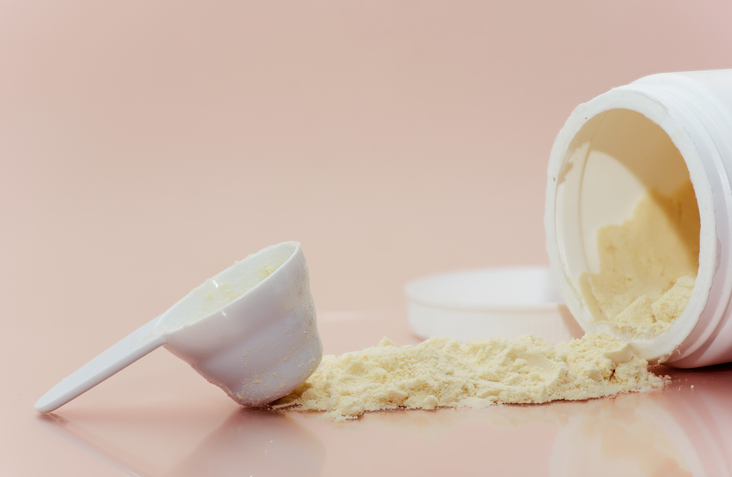
The double-blind, placebo-controlled crossover study compared the effect of colostrum supplementation or placebo in 28 male football players, investigating immune system functioning, selected parameters related to iron management, and anabolic/catabolic balance.
The authors from Poland found that supplying athletes with BC reduced inflammation, which was indicated by a significant decrease in TNFα secretion, which the authors hypothesise may result in faster muscle regeneration after exercise and, thus, may be reflected in better results in subsequent training sessions.
They conclude: “The use of BC, which is characterised by a high content of immunologically active compounds, can be an element of a relatively mild and safe intervention for reducing inflammation induced by intense physical exercise.”
Significance
Football is characterised by physiologically demanding, high-intensity exercise.
The repetitive and eccentric characteristics of football movements can induce muscle damage accompanied by leakage of muscle enzymes and proteins into the circulation, oxidative stress, inflammation, and a decrease in muscle performance.
The characteristics of muscle damage after games can disrupt the regeneration process, yet given the schedule of elite players, recovery periods do not allow for optimal restoration to pre-match levels, increasing risk of muscle injury.
The use of BC, derived from the initial milk of cows, has previously been researched as a supplement to aid in recovery and enhance performance, as it contains compounds like growth factors, antimicrobial peptides, and immune mediators, with potential applications in athletic performance.
Lactoferrin, a component of BC, has been highlighted for its anti-inflammatory and antioxidant properties.
Previous research has suggested that lactoferrin controls the inflammatory response by preventing iron-mediated free radical injury at inflamed sites through the control of oxidative stress.
Additionally, previous study found that low-dose BC supplementation in football players led to reduced muscle fibre damage and inflammation expressed by C-reactive protein and interleukin-6.
It has also been found that the reduction of post-exercise inflammation through the ingredients contained in BC had a positive effect on parameters related to iron metabolism, significant as disturbances in iron economy occurring during periods of increased training are a cause of decreased performance in athletes.
The study
The study recruited 28 male football players from the Polish III league Club, Chemik Moderator Bydgoszcz, to complete 24 weeks of either colostrum or placebo supplementation.
The supplemented group (n = 19) received four gastro-resistant capsules of 3.2 g BC (produced by AGRAPAK, Poznań, Poland) every morning and evening.
The placebo group (n = 9) received powdered milk at the same dose and on the same dates as the supplemented group.
At the beginning of the trial and after 3 and 6 months of supplementation, a multistage 20 m shuttle run test (Beep Test) was conducted during the following training periods: in the preparatory period (T-1), at the beginning of the competitive period (T-2), and the end (T-3) of the competitive period.
Blood samples were taken before and after the exercise test and after 3 h of recovery, and markers of iron homeostasis, pro- and anti-inflammatory balance, and hormonal responses were determined.
A significant increase in immunoglobulin G concentration was observed (p = 0.0033; η2 = 0.94 for the main effect of group), accompanied by a decrease in inflammatory markers in supplemented athletes.
After the intense exercise test, a significantly higher level of TNF-α was observed in the placebo group after 3 h of recovery than in the control group.
The changes in TNF-α levels were the greatest after 6 months of supplementation (T-3) (p < 0.001; η2 = 0.25 for group × time and p < 0.001; η2 = 0.47 for the main effects of time and p < 0.001; η2 = 0.62 for group).
While the exercise test caused an increase in TNF-α levels (significantly higher level post-exercise than pre-exercise) in both groups, 3 h of recovery in the supplemented group showed the level of TNF-α decreased, whereas in the placebo group, it remained increased.
BC supplementation however had no significant effect on athletes’ performance or iron management and hormonal response.
The authors conclude: “The strengthening of the immune system, indicated by an increase in IgG in the subjects who consumed BC, may be an important factor in protecting against infections, constituting an important element in maintaining the continuity of training by, e.g., reducing absences from training caused by infections.
“Therefore, it is necessary to consider supplying athletes with BC in periods of increased susceptibility to infections related to both the season (late autumn–winter–early spring) and periods with a high exercise load (competition period).
“It is worth noting, however, that the effectiveness of colostrum as a supplement to strengthen the immune system of athletes may vary depending on the quality and composition of each particular product, the time and dose of the supplement, and the training loads used.”
Journal: Nutrients
https://www.mdpi.com/2072-6643/15/22/4779
Long-Term Bovine Colostrum Supplementation in Football Players
Authors: Mirosława Cieślicka, Błażej Stankiewicz, Radosław Muszkieta, Małgorzata Tafil-Klawe, Jacek Klawe, Anna Skarpańska-Stejnborn, and Joanna Ostapiuk-Karolczuk.
